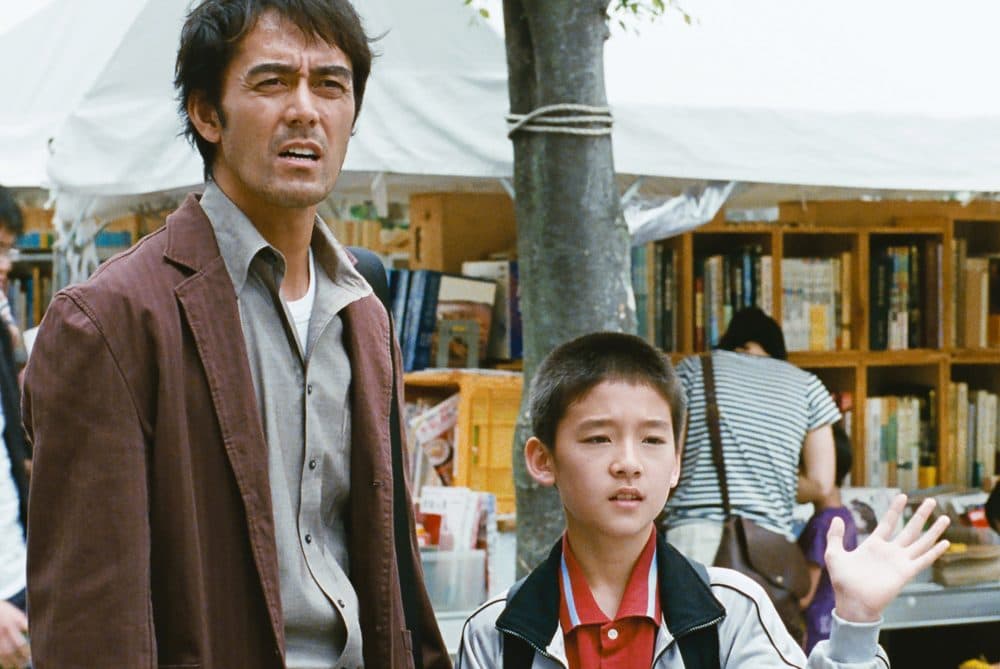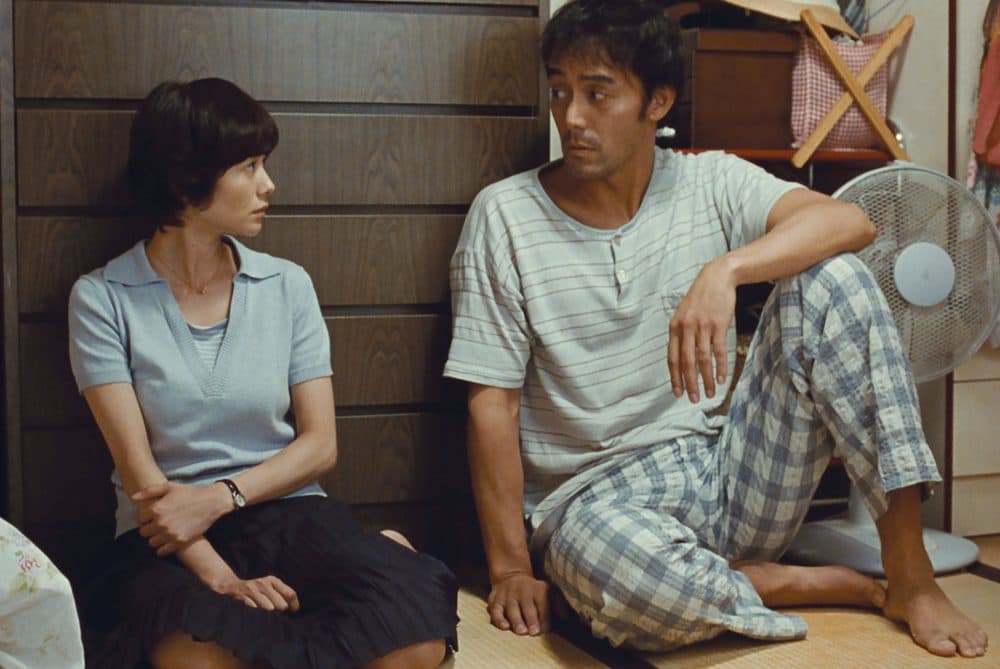Advertisement
Review
In ‘After The Storm,’ A Compassionate And Honest Look At A Middle-Aged Screw-Up

The films of Hirokazu Kore-eda don’t showboat for your attention. You won’t hear his name much when critics make lists of trendsetters or hotshot auteurs. Yet this quietly, insistently compassionate filmmaker has spent the past 20-odd years turning out the kind of modestly-scaled, humane dramas that Hollywood — and even American independent cinema — have all but abandoned. Kore-eda films, such as “I Wish,” “Still Walking” and “Like Father, Like Son,” aren’t sexy or controversial, but in their small, observational ways offer unexpectedly complete emotional journeys. When they’re over, you feel like you’ve been somewhere.
Kore-eda’s latest, “After the Storm,” is one of his very best. On the surface, it’s the story of a screw-up hitting the skids in middle age and realizing how much he’s thrown away. The gangly, sad-eyed Hiroshi Abe stars as Ryôta, a burned out novelist who never followed up his one minor success and these days spends most of his time at the track, blaming everyone but himself for his stalled career. He works part time as a private investigator, shaking down the subjects of his surveillance and spying on his ex-wife’s new boyfriend. When we first meet Ryôta, he’s snooping around his mother’s apartment, looking for family heirlooms to pawn.
He sounds like a real scoundrel, but Kore-eda regards Ryôta with the same serene gaze as the character’s mother, Yoshiko (played by veteran actress Kirin Kiki, who has appeared in several of the director’s films). She reached some sort of peace with her boy’s perpetual disappointments a long time ago, comparing him to a plant she keeps on the balcony: "It doesn't flower or bear fruit, but I water it every day like it's you." There’s not a malicious note in Hiroshi Abe’s hulking, hangdog performance. He comes off as one of those nice enough guys who just can’t help fouling everything up all the time. You like him, often in spite of his actions.
Ryôta’s behind on child support (again) and in danger of losing his monthly visit with a young son he worries is becoming more and more of a stranger. During their time together, we watch the wily, cash-strapped father scamming ways to score his kid some expensive cleats at a discount, or quite touchingly insisting he’s not hungry when he takes the boy to a fancy burger joint and can only afford to order for one. It becomes clear through the conversations that Ryôta has more than a little bit in common with his own recently deceased dad, and his sudden bout of introspection might have something to do with realizing that the apple didn’t fall very far from the tree.
The film’s second hour takes place during a typhoon, when he winds up stranded for the evening with his ex-wife (Yôko Maki) and son at Yoshiko’s cramped apartment. For Ryôta, this accidental sleepover is a chance to audition for Act II, reviving the family unit he didn’t realize how much he was going to miss. “I wonder why it is that men can’t love the present,” his mother sagely notes from the sidelines. “Either they keep chasing whatever it is they’ve lost, or they keep dreaming beyond their reach.”

What follows is a long night of small epiphanies. As usual, Kore-eda steers clear of melodramatic revelations or pat resolutions and simply lets his characters be. The unshowy camerawork is so matter-of-fact it’s easy to miss how carefully composed his shots are, always catching the actors most telling reactions without making a big deal out of it. He uses music sparingly, never pushing for memorable moments. Kore-eda’s technique is almost invisible, which makes it all the more impressive.
“After the Storm” isn’t the kind of movie that wraps everything up in a big bow for you at the end, and Kore-eda’s certainly not going to pretend that one night can solve years of family dysfunction. But with gentleness and great empathy, the film leaves these characters in a better place than they were before the rain.

